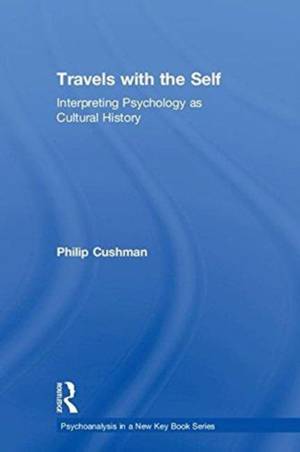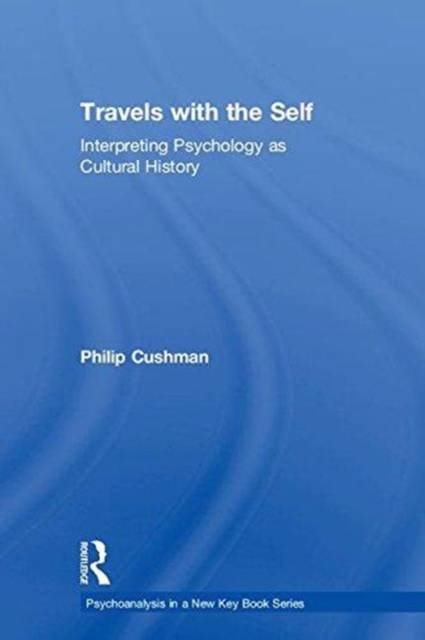
- Afhalen na 1 uur in een winkel met voorraad
- Gratis thuislevering in België vanaf € 30
- Ruim aanbod met 7 miljoen producten
- Afhalen na 1 uur in een winkel met voorraad
- Gratis thuislevering in België vanaf € 30
- Ruim aanbod met 7 miljoen producten
Omschrijving
Travels with the Self uses a hermeneutic perspective to critique psychology and demonstrate why the concept of the self and the modality of cultural history are so vitally important to the profession of psychology. Each chapter focuses on a theory, concept, sociopolitical or professional issue, philosophical problem, or professional activity that has rarely been critiqued from a historical, sociopolitical vantage point.
Philip Cushman explores psychology's involvement in consumerism, racism, shallow understandings of being human, military torture, political resistance, and digital living. In each case, theories and practices are treated as historical artifacts, rather than expressions of a putatively progressive, modern-era science that is uncovering the one, universal truth about human being. In this way, psychological theories and practices, especially pertaining to the concept of the self, are shown to be reflections of the larger moral understandings and political arrangements of their time and place, with implications for how we understand the self in theory and clinical practice.
Drawing on the philosophies of critical theory and hermeneutics, Cushman insists on understanding the self, one of the most studied and cherished of psychological concepts, and its ills, practitioners, and healing technologies, as historical/cultural artifacts - surprising, almost sacrilegious, concepts. To this end, each chapter begins with a historical introduction that locates it in the historical time and moral/political space of the nation's, the profession's, and the author's personal context.Travels with the Self brings together highly unusual and controversial writings on contemporary psychology that will appeal to psychoanalysts and psychotherapists, psychologists of all stripes, as well as scholars of philosophy, history, and cultural studies.
Specificaties
Betrokkenen
- Auteur(s):
- Uitgeverij:
Inhoud
- Aantal bladzijden:
- 326
- Taal:
- Engels
- Reeks:
Eigenschappen
- Productcode (EAN):
- 9781138605497
- Verschijningsdatum:
- 14/08/2018
- Uitvoering:
- Hardcover
- Formaat:
- Genaaid
- Afmetingen:
- 156 mm x 234 mm
- Gewicht:
- 635 g

Alleen bij Standaard Boekhandel
Beoordelingen
We publiceren alleen reviews die voldoen aan de voorwaarden voor reviews. Bekijk onze voorwaarden voor reviews.











